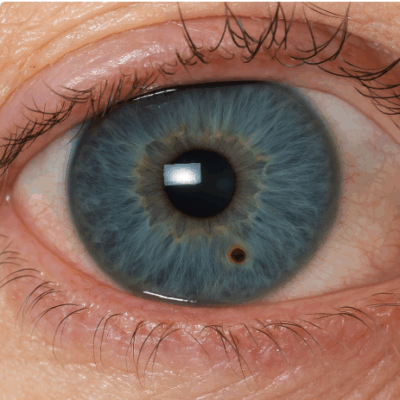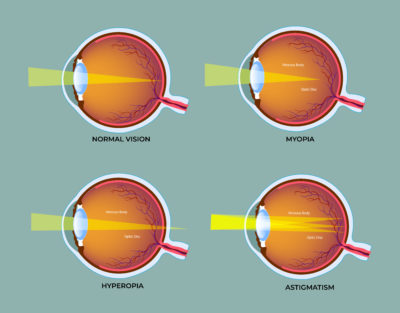Vitamin A is one of the most essential nutrients for maintaining healthy eyes and clear vision. Known for its role in supporting the retina, cornea and immune function, this fat-soluble vitamin also protects against eye diseases.
While many people get vitamin A from food, some require supplementation. In this article, we explain the importance of vitamin A, the benefits of vitamin A capsules for the eyes, possible risks, and when professional advice is necessary.
What is Vitamin A Deficiency?
Vitamin A deficiency occurs when the body does not receive enough of this essential nutrient from food or supplements. It is one of the leading causes of preventable blindness worldwide, especially in children.
Early signs include dry eyes, frequent eye infections and night blindness. In severe cases, corneal ulcers and permanent vision loss may develop. Addressing deficiencies with food or supplements is vital for preventing long-term complications.
How Vitamin A Supports Vision?
Vitamin A is crucial for the production of rhodopsin, a protein in the retina that allows the eyes to see in low light. Without adequate vitamin A, the eyes cannot adjust properly in darkness, leading to night blindness.
Additionally, vitamin A helps maintain a healthy cornea, supports tear production and strengthens overall immunity. Together, these functions highlight why vitamin A is considered essential for good vision and healthy eyes.
The Importance of Vitamin A for Eyes
Why Vitamin A is Essential for Eye Health
Vitamin A plays multiple roles in protecting eye structures. It prevents dryness by supporting tear glands, ensures the cornea remains clear, and helps the retina capture light for vision.
Adequate vitamin A also strengthens the eye’s defence against infections by supporting surface tissue integrity. Without it, the eyes are vulnerable to inflammation, scarring and vision loss, making regular intake of vitamin A critical for lifelong eye health.
The Role of Vitamin A in Preventing Eye Diseases
Vitamin A reduces the risk of serious conditions such as xerophthalmia, keratomalacia and corneal ulcers. Research also shows it may protect against age-related macular degeneration and cataracts by supporting antioxidant defences.
In children, supplementation prevents blindness caused by malnutrition, while in adults, it helps maintain retinal function. Ensuring sufficient vitamin A intake through a balanced diet or supplements helps prevent both infectious and degenerative eye diseases effectively.
The Benefits of Vitamin A Capsules for the Eyes
Enhancing Vision with Vitamin A
Vitamin A capsules for the eyes provide concentrated doses that improve visual function, especially in people with a deficiency. They support night vision, reduce eye strain and maintain corneal clarity.
For individuals with diets lacking sufficient vitamin A, supplements are a convenient way to ensure consistent intake. Taking vitamin A capsules for the eyes enhances overall vision quality and reduces the likelihood of deficiencies that compromise sight.
Protecting Against Eye Conditions
Vitamin A capsules for the eyes help protect against infections and degenerative eye diseases. They reduce the risks of corneal damage, conjunctival dryness and other complications associated with low vitamin A.
By strengthening the eye’s defences and supporting tissue repair, these supplements serve as an additional safeguard. For individuals with recurring eye irritation, supplementation can provide long-term benefits in conjunction with a balanced diet and regular medical care.
Preventing Night Blindness and Dry Eyes
One of the most recognised benefits of vitamin A capsules for the eyes is the prevention of night blindness. Supplementation restores rhodopsin production in the retina, enabling proper vision in dim light.
It also prevents dry eyes by supporting tear production, reducing discomfort and irritation. For individuals prone to dryness or who struggle with low-light vision, vitamin A supplementation provides effective, clinically proven relief and long-term protection.
How to Incorporate Vitamin A Into Your Diet for Healthy Eyes
Best Food Sources of Vitamin A
Natural food sources are the best way to maintain healthy levels of vitamin A. Carrots, sweet potatoes, spinach, kale, and pumpkin are rich in beta-carotene, which the body converts to vitamin A.
Animal-based sources, such as liver, eggs, and dairy, provide retinol, the active form. Including a mix of plant and animal sources ensures adequate intake and reduces the need for excessive supplementation.
The Role of Supplements for Eye Health
While a balanced diet is ideal, vitamin A capsules for the eyes provide additional support for people with deficiencies, digestive issues or limited diets. They are especially important in areas where deficiency is common.
Supplements ensure stable vitamin A levels, protecting against eye problems and enhancing overall vision. However, supplementation should only be started after medical advice, as unnecessary use can lead to toxicity and potential health risks.
Recommended Daily Dosage
The recommended daily intake varies by age, gender and health status. For adults, it is generally around 700 micrograms for women and 900 micrograms for men. Children and pregnant women may have different requirements.
Exceeding the safe upper limit of 3,000 micrograms daily can cause toxicity. Vitamin A capsules for the eyes should therefore be taken under medical supervision. This ensures the dosage aligns with personal health needs and prevents harmful effects.
Risks of Vitamin A Deficiency for Your Eyes
Symptoms of Vitamin A Deficiency
The earliest symptom of deficiency is night blindness, where the eyes struggle to adjust in dim light. Other signs include dry eyes, frequent eye infections, corneal ulcers, and thickened conjunctiva.
These symptoms often appear gradually but can progress quickly if left untreated. Recognising these early indicators is important for preventing long-term vision damage and ensuring timely supplementation or dietary correction.
Potential Long-Term Vision Problems
Prolonged vitamin A deficiency can cause irreversible blindness, especially in children. Chronic low levels weaken the cornea, leading to keratomalacia, a condition where the cornea softens and deteriorates.
Adults may develop xerophthalmia, permanent corneal scarring and a higher risk of degenerative conditions like macular degeneration. Preventing deficiency through diet, supplementation, and medical monitoring is essential to avoid long-term and irreversible vision loss.
Possible Side Effects and Considerations of Vitamin A Supplements
Can Too Much Vitamin A Be Harmful?
Excess vitamin A can be toxic. Symptoms include nausea, headaches, dizziness, liver damage and bone pain. In severe cases, toxicity can lead to congenital disabilities during pregnancy.
Unlike beta-carotene from food, retinol in capsules is more likely to cause toxicity. For this reason, supplementation should always be carefully monitored, and doses adjusted only under medical advice.
How to Safely Use Vitamin A Supplements?
Safe use of vitamin A capsules for the eyes requires consulting a healthcare professional. This is especially for pregnant women, children, and individuals with liver disease. Capsules should be taken with meals containing fat for better absorption.
Following prescribed dosages and avoiding self-medication ensures the benefits are maximised without exposing the body to risks of toxicity. Regular monitoring of vitamin A levels may also be necessary for those on long-term supplementation.
When to See a Doctor for Advice About Vitamin A Supplements
Consult a Doctor for Vitamin A Supplements
Before starting vitamin A capsules for the eyes, it is essential to consult a doctor. They can assess whether a deficiency exists, recommend the correct dosage and monitor progress.
Unsupervised use can lead to harmful side effects. Medical guidance ensures supplements are tailored to individual needs.
Recognising Warning Signs for Eye Health
Seek medical advice if you notice persistent night blindness, extreme dryness, corneal changes or frequent eye infections. These may indicate a deficiency or underlying eye disease.
Early medical evaluation helps prevent complications and ensures effective treatment through dietary changes or supplements.
Conclusion
Vitamin A is essential for maintaining healthy eyes, supporting the cornea and retina, and preventing vision problems such as night blindness and dryness. Vitamin A capsules for the eyes provide concentrated benefits, particularly for those with a deficiency, but must be used cautiously to avoid toxicity. A balanced approach that combines food sources, supplements under medical supervision, and regular eye check-ups offers the best protection for long-term vision health.









